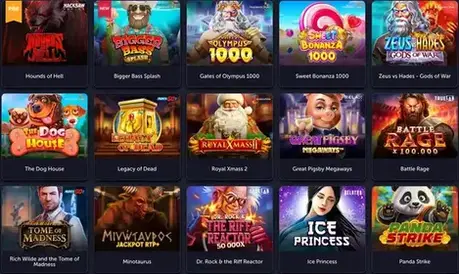Вавада официальный сайт и зеркало Vavada казино
Минимализм, удобство в навигации и топовый пользовательский опыт – важнейшие нюансы и традиции, которым не изменяет официальный сайт Вавада с 2017 года, когда состоялся официальный релиз в индустрии онлайн гемблинга. Проект сразу обзавелся услугами самого надежного и востребованного лицензиата в сфере азартных игр – Кюрасао. Информация относительно регулятора всегда отображается в нижней части страницы после входа.
В футере заведения предлагается удобная навигация в один клик на правила по гемблингу и для размещения ставок на спортивные матчи. Рядом – кнопка для отображения всех контактных данных и функционал с изменением на любой из 20 доступных языков контента. В нижнюю часть дополнительно разместили социальные сети Vavada казино, ответственную игру и принимаемые платежные средства.
Большую часть главной страницы занимают два крупных блока: баннеры и игровое портфолио с горизонтальным меню из пяти кликабельных опций. Еще на основном интерфейсе найдете кнопки для регистрации, входа и запуска технической поддержки через чат.
Вавада Зеркало
Компания постоянно работает над усовершенствованием альтернативного доступа к своим казино. Этот кейс очень важен для игроков, в странах которых нельзя по законам заходить на азартные порталы. По этой причине в топе запросов находится Vavada зеркало, это обновленные URL-адреса клуба для браузеров для входа на ПК и мобильных устройствах.

Для быстрого уточнения рабочих ссылок клиенты запрашивают соответствующую информацию у оперативной техподдержки. Кликом на «помощь» открывается окно с чатом, где на вопросы юзеров отвечают в круглосуточном режиме в течение нескольких минут.
Вход Vavada casino предоставляется через специальную рассылку на электронную почту. Этот функционал становится актуальным для сегмента пользователей, которые уже прошли процесс создания учетной записи на сайте. И третьим надежным методом переадресации выступают соцсети казино, в которых постоянно выходят свежие ссылки на зеркало для входа.
Вавада регистрация
Регистрация аккаунта – идентичная процедура с официального сайта или любой зеркальной вариации казино. Кнопка с регистрацией на Ваваде размещена в правом верхнем углу и выделена ярким красным цветом, найдете ее в считанные секунды после раскрытия ресурса на экране вашего девайса. Для быстрого присоединения выполните следующие действия:
- Добавьте телефон или email – один из кейсов будет необходим для подтверждения регистрации и всегда использоваться в качестве логина.
- Придумайте надежный пароль для вашего аккаунта.
- Определите валюту, с которой будете взаимодействовать в личном кабинете.
- Примите правила и положения, установленные компанией для игры.

После подтверждения регистрации в казино, пишете учетные данные в форме входа и входите в личный кабинет казино. Вас ждет удобный минималистичный интерфейс и быстрый доступ к необходимым настройкам, включая депозиты и выводы средств через надежные платежные средства. Важный нюанс: на Vavada online вас не побеспокоят относительно срочной проверки личности, и верификацию изначально оставляют на усмотрение игрока.
Вавада бонус
Программа радует новичков, мотивирует действующих клиентов, чтобы оставаться активными в предлагаемом ассортименте для развлечений. В актуальные Вавада бонусы включены следующие кейсы:
- 100 фриспинов. Гемблер пользуется первым бездепозитным бустом казино в виде 100 бесплатных вращений в игровом автомате The Great Pigsby Megaways.
- 100% к депозиту. Второе поощрение в приветственном бонусе составляет до 90000 рублей (или эквивалент в другой валюте) после внесения депозита на основной баланс.
- Лояльность. Это специальный официальный статус клиента, отображаемый в настройках аккаунта. Продвижение по шкале обновляет условия вейджеров постоянных акций, уменьшает Х, активирует услуги личного менеджера и специальные подарки от заведения.
- 10% кэшбэк. Максимальный возврат денежных средств приходит игроку со статусом «платиновый» в программе лояльности.
- Презент к ДР. На Vavada com поздравляют именинников зачислением 50 фри спинов для прокрутки.
- Бонус коды. Промокоды позволяют заходить в аппараты с новыми уникальными FS и прокручивать барабаны с увеличенными шансами на выигрыш.
Постоянные акции имеют определенные требования по отыгрышу. Х20 применяется для бездепозитного подарка, х35 – к сумме первого депозита, а условие х5 повторяется для ежемесячного кешбэка и презента на день рождения клиента.
Вавада мобильное приложение
Игрокам обеспечены сразу два топовых кейса по гемблингу на сайте с мобильных девайсов. В любое время открываете мобильную версию официального сайта Вавады на смартфоне, где интерфейс и расположение элементов аналогично ПК-вариации. Система работает стабильно даже на старых операционных системах.
Большой спрос на сегодня игроки показывают на специализированное программное обеспечение клуба. Решение разработано для легкой загрузки и установки на андроиды и айфоны, в программу встроен функционал рабочего зеркала – обход действующих в регионе юзера блокировок.
Сейчас скачать Вавада возможно по ссылкам, которые отправляет служба поддержки после запроса с вашей стороны. Актуальную информацию относительно приложения размещают в соцсетях компании и отправляют по рассылке на электронную почту гемблера.
Vavada игровые автоматы
Гемблинговые разделы на сайте у данного оператора – в полном охвате самых востребованных аспектов и официальных тайтлов. В 2025 году в арсенале казино Вавада найдете следующие секции:
- Слоты. 42 авторитетные компании по разработке доверили в общей сложности уже более пяти тысяч игровых автоматов данному оператору. Ежедневно клуб обновляет линейку слотов новинками и эксклюзивными пререлизами.
- Аркады. Популярные игры на тематику краш и другие жанры в легком доступе – после клика на опцию «столы».
- Лайв. В live казино активируете ставки против живых дилеров, интегрированы столы и вариации блэкджека, баккары, покера, рулетки и других игр. Провайдеры – 4, в один клик попадаете в лобби Betgames, Evolution, Pragmatic Play и Playtech.
- Турниры. Уникальная возможность каждый день забирать минимум 100 долларов на основной счет за попадание в таблицу лидеров. Vavada проводит ежедневные и еженедельные турниры по трем категориям и с общими призовыми фондами от 20000 до 60000 USD.

Еще в ассортименте оператора увидите три уникальных кэша – собственные джекпоты, которые выигрывают участники, размещающие ставки в реальном режиме. Самый крупный уровень Mega часто доходит до одного миллиона долларов.
Вавада ставки на спорт
Раздел спортбука включает в себя три востребованные категории. Букмекер Вавада принимает лайв и прематч ставки на спорт, виртуальный спорт и киберспортивные дисциплины. Система работает быстро с обновлением тысячи коэффициентов для матчей в режиме реального времени. В интерфейсе представлены самые популярные маркеты и классная функция с эксклюзивным повышением коэффициентов на ближайшие топовые события.
Техническая поддержка Вавада
На сегодняшний день наиболее востребованным методом коммуникации с казино Vavada поддержкой является чат в режиме реального времени. Данный способ связи с саппортом работает 24/7 и общается не только с авторизованными клиентами, но и со всеми гостями портала, у которых еще нет открытой учетной записи. С ПК чат запускается нажатием на «помощь» рядом с формой входа в аккаунт. В мобильной раскладке запуск функционала – через клик на вопросительный знак.
Ссылка в футере «написать нам» раскрывает на экране вашего устройства остальные способы коммуникации с поддержкой. Саппорт Вавада доступен через электронную почту, номер телефона и мессенджеры в соцсетях.
Вавада партнерская программа
Вы легко можете сотрудничать с компанией, приводить новых клиентов на платформу и зарабатывать крупные комиссионные. После подтверждения заявки партнер забирает лучшие кейсы для быстрого продвижения в программе – от реферальной ссылки до топовых промокодов на фриспины.
Сейчас партнерка Vavada дает участникам две выплаты: разовая до 300 долларов по модели CPA и от 50% по долгосрочной схеме Revshare.
Способы пополнения и вывода средств
Игроки пополняют счет и получают выигрыши посредством проверенных платежек. В личном кабинете клиентам предлагаются быстрые банковские транзакции онлайн, электронные кошельки и криптовалюта. Минимальная сумма для депозита по правилам клуба составляет 50 рублей, снятия подтверждаются администрацией, начиная с 1000 RUB.
| Способ оплаты | Пополнение | Вывод | Мин. сумма | Поддерживаемые валюты | Скорость пополнения |
|---|---|---|---|---|---|
| Банковские карты | ✅ | ✅ | от 50 ₽ | RUB, USD, EUR, KZT, UAH | Моментально |
| P2P (карты, QIWI) | ✅ | ✅ | от 500 ₽ | Только RUB | В течение нескольких минут |
| VouWallet | ✅ | ✅ | от 50 ₽ | RUB, USD, EUR, KZT | Почти мгновенно |
| Piastrix | ✅ | ✅ | — | RUB, USD, EUR, KZT, UAH | Зачисление сразу |
| MuchBetter | ✅ | ✅ | — | RUB, USD, EUR | Почти мгновенно |
| Bitcoin | ✅ | ✅ | от 220 ₽ | RUB, USD, EUR, KZT, UAH | До 10 минут |
| Binance Pay | ✅ | ✅ | от 6 000 ₽ | — | Время зависит от сети |
| Tether TRC-20 | ✅ | ✅ | от 600 ₽ | — | До 5 минут |
| Tether ERC-20 | ✅ | ✅ | от 400 ₽ | — | До 30 минут |
| TRON | ✅ | ✅ | от 600 ₽ | — | Почти мгновенно |
| Litecoin | ✅ | ✅ | от 73 ₽ | — | До 10 минут |
| Ethereum | ✅ | ✅ | от 1516 ₽ | — | До 30 минут |
Пополнения зачисляются моментально или в течение нескольких минут. Прежде чем отправлять заявку на вывод, рекомендуется ознакомиться с возможными комиссиями и условиями. Обратите внимание: при оформлении вывода на сумму от $1 000 потребуется пройти процедуру верификации — это стандартная мера безопасности для крупных выплат.




